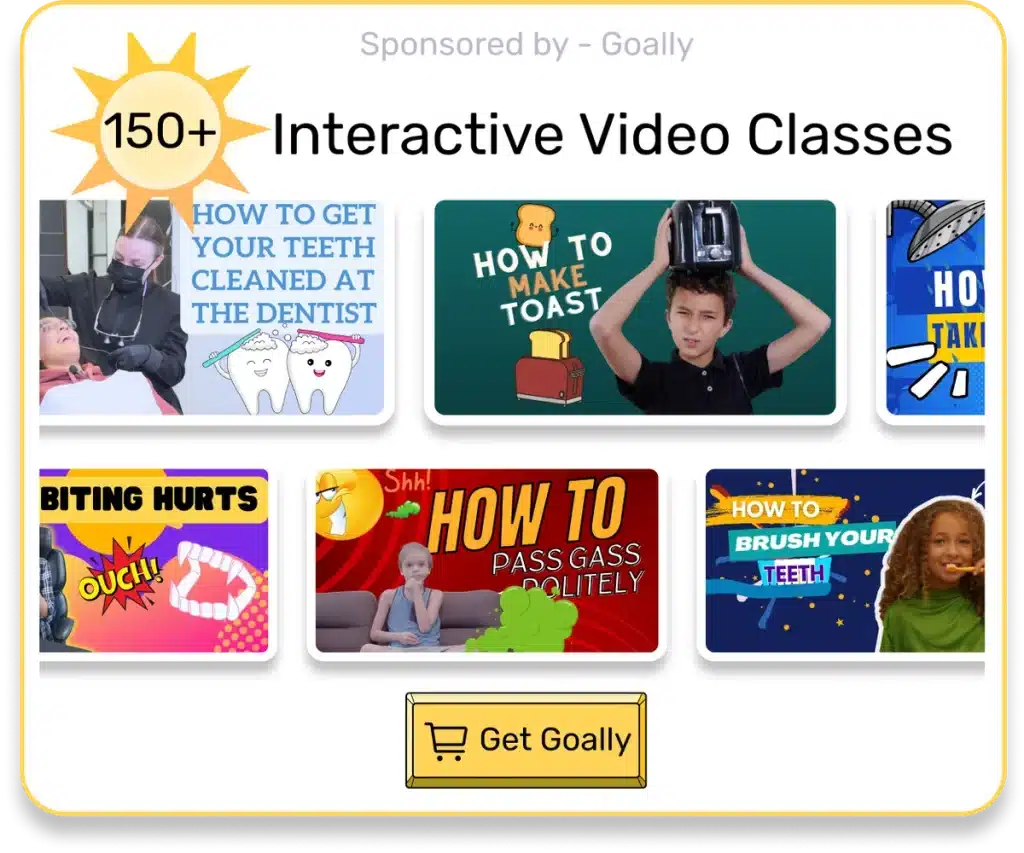Ever found yourself in a tug-of-war with your little one over the iPad? I’ve seen it countless times in my practice. Kids, with their eyes glued to the screen, and parents, desperate to pry them away. The question at the heart of this struggle is, “How much screen time is healthy?” According to the NHLBI, health experts suggest limiting screen time to two hours or less a day – and yes, that includes televisions, computer monitors, and handheld devices. In this blog post, we’ll explore the nuances of screen time and its effects on children’s development, especially those who are neurodivergent, and provide actionable strategies for managing it effectively. Whether your child is a budding gamer or a YouTube enthusiast, this guide will equip you with the knowledge to navigate the digital landscape confidently.
Table of Contents
Understanding Screen Time
In my practice, I’ve seen how screen time can be a double-edged sword. On one hand, it offers educational content and a chance for kids to unwind. Conversely, it can lead to sedentary behavior and less time for physical activity. But let’s clarify – not all screen time is created equal. For instance, an hour spent learning coding on a computer differs from an hour spent watching cartoons.
Effects of Excessive Screen Time
Excessive screen time can have several implications. Firstly, it can affect a child’s physical health. Kids who spend more time on screens may be less physically active, leading to weight gain and related health problems. Secondly, it can impact their sleep. Research shows that kids who use screens before bedtime take longer to fall asleep and have disrupted sleep patterns.

Read more: 5 Reasons Why Healthy Screen Time Is Good
Screen Time and Neurodivergent Kids
For neurodivergent kids, the effects of screen time can be even more pronounced. These kids may become overstimulated by the bright colors and rapid movements on screen. Moreover, they may need help transitioning from screen time to other activities. But remember, every child is unique. Some neurodivergent kids may benefit from certain types of screen time, like educational apps that reinforce learning.
Managing Screen Time
So, how can you manage your child’s screen time effectively? Here are some strategies:
Create a Schedule
Establish a screen time schedule. This helps kids understand when it’s time to use screens and when it’s time to do other activities. You can even involve your child in creating the schedule to make it more engaging.
Choose Quality Content
Not all screen time is bad. Choose high-quality, educational content that can enhance your child’s learning. Some many apps and websites offer engaging and educational content for kids of all ages.

Goally | Best Videos to Teach Life Skills
Give your kid an independent future. Goally has 100+ video classes teaching life skills like “How to Choose a Restaurant,” “How to Interrupt Politely,” and “How to Get Ready for School.”
Goally takes kids on an adventure that includes interactive practice and checkpoints along the way! No web browsers, YouTube, or social media.
Set a Good Example
Kids often imitate what they see. Your child might want to do the same if you’re always on your phone or laptop. Try to set a good example by limiting your own screen time.
Screen Time Recommendations
The NHLBI recommends that screen time at home should be limited to two hours or less a day. But remember, these are just guidelines. What’s most important is to find a balance that works for your family.
Remember, screen time isn’t inherently bad. It’s all about how it’s used. By setting boundaries and choosing quality content, you can ensure that screen time is a beneficial part of your child’s day.
In the digital age, managing screen time can feel like a daunting task. But with some planning and intention, it’s possible to strike a balance. Remember, it’s not just about limiting screen time but also about promoting quality screen time. Every child is unique, especially our neurodivergent kids, so tune into their needs and adjust as necessary. With these strategies in hand, you’re well-equipped to navigate the world of screen time with your child.
FAQ about How Much Screen Time is Healthy
What is the recommended screen time for children? The NHLBI suggests that screen time should be limited to two hours or less a day. However, this can vary based on the child's age and the quality of the screen time. How does excessive screen time affect children? Excessive screen time can lead to sedentary behavior, disrupted sleep patterns, and in some cases, overstimulation, especially in neurodivergent children. Can some screen time be beneficial? Absolutely, high-quality, educational screen time can enhance a child's learning and development. The key is to ensure a balance between screen time and other activities. How can I effectively manage my child's screen time? Creating a schedule, choosing quality content, and setting a good example can help manage your child's screen time effectively. This post was originally published on 03/29/2023. It was updated on 02/10/2024.

Goally
We help parents teach their kids life skills, like doing bedtime and morning independently. Backed by science, we incorporate evidence-based practices and expert-informed designs in all of our apps and content.






